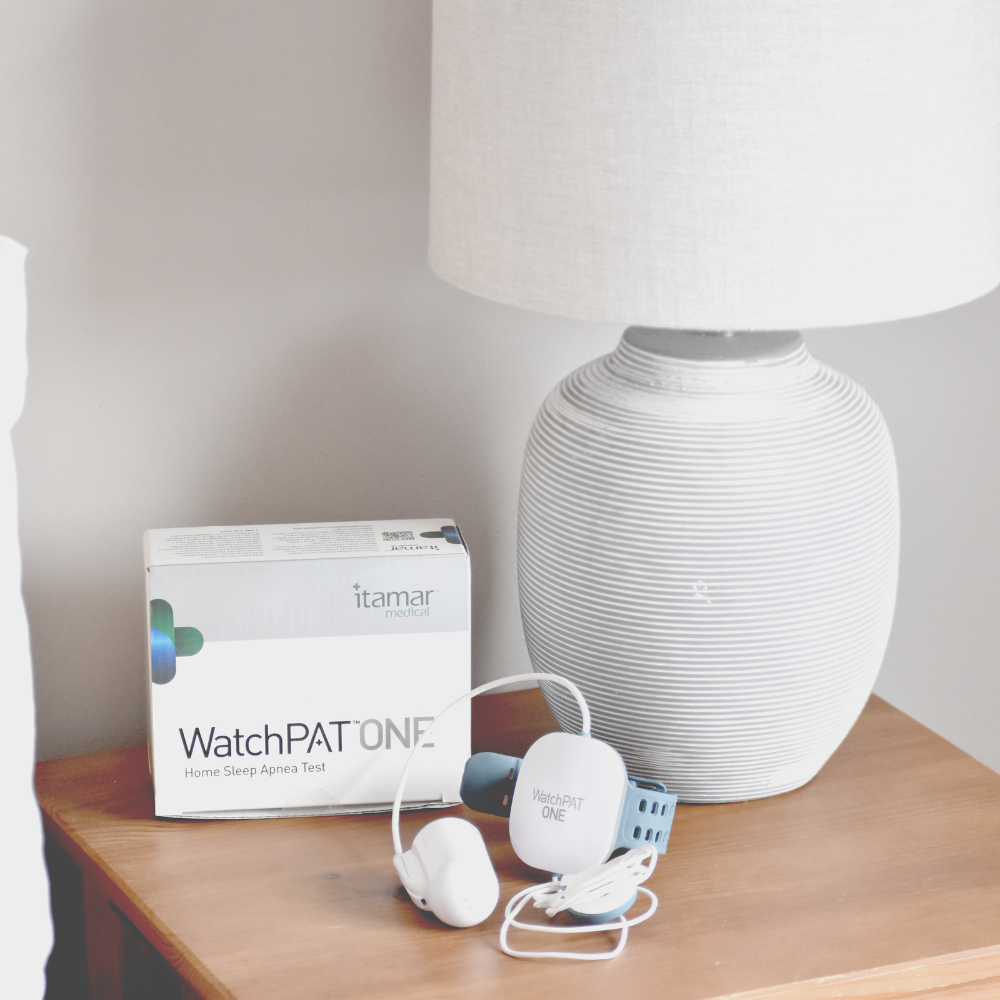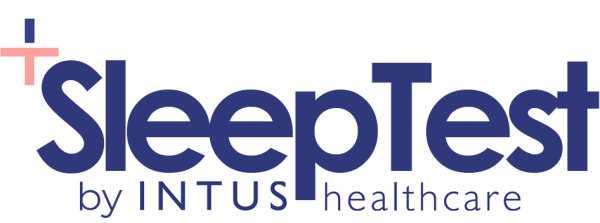Fact Checked
Intus Healthcare’s writers, customer service team, and sleep experts review and ensure this information is accurate.
Last updated on March 31st, 2025 at 11:26 am
Although extremely uncommon, it is possible to die from untreated Obstructive Sleep Apnoea. Research has found that OSA increases a person’s risk of sudden death (1). The risk can be higher in older people, those with a critical illness, and people with severe OSA.
Untreated Sleep Apnoea significantly increases the risk of death because it can lead to cardiovascular conditions that can be fatal. One study found that people with severe Sleep Apnoea were up to three times more likely to die prematurely if untreated (2).
There is no doubt that Sleep Apnoea can severely affect your quality of life. Treatment is therefore essential not only to improve your day-to-day existence but to avoid the onset of more serious, life-threatening conditions. This article will explain the dangers of Sleep Apnoea, how you can get tested and treat the condition.
Table of Contents
Untreated Sleep Apnoea Life Expectancy
Untreated Obstructive Sleep Apnoea can significantly reduce your life span. Those with untreated OSA are at more than three times the risk of premature death, reducing life expectancy by 17% (3). A study found that those with Sleep Apnoea who did not seek treatment had a five times greater chance of heart-related death (2).
Why can you die from Sleep Apnoea?
Obstructive Sleep Apnoea (OSA) is when your airways become partially or fully blocked during sleep. This blockage causes breathing pauses (Apnoea events) that can happen more than 30 times per hour per night. Choking in your sleep, waking up gasping for air, and snoring are common symptoms of Sleep Apnoea.
The breathing pauses can last at least 10 seconds and cause the body’s oxygen levels to fall, carbon dioxide levels to rise, and blood pressure and heart rate spikes. As the body struggles to breathe, hormones like cortisol (the “stress hormone”) increase. Typically, it is not Sleep Apnoea alone that will kill you but the development of other health conditions when it is left untreated.
Importance of Taking a Sleep Test
Studies have found that around 80-90% of people with OSA are undiagnosed (3). Taking a Sleep Test at home and starting treatment can significantly improve sleep quality and reduce the risk of many health problems.

Home Sleep Apnoea Test
The test monitors your heart rate, snoring intensity, blood oxygen levels, body positioning, and more, providing accuracy comparable to testing used in sleep clinics for in-depth sleep analysis.
The simple-to-use test takes just one night to complete, and results are returned within two working days after completion.
Our experienced NHS-qualified sleep professionals independently analyse all studies, providing follow-up advice and support.
Here’s why our customers recommend our sleep tests:
- Convenient – Delivered to your doorstep the next working day.
- No time off work – You won’t need to make a hospital trip to get the device or to return it.
- Affordable – The cost of an In-Home Sleep Test is £195.
- Comfortable -Testing is completed in the comfort of your own home.
- Accurate results – The test is analysed by NHS-trained sleep specialists, with accuracy comparable to PSG testing.
- Fast results – Receive results in two working days after completing the test. NHS sleep clinic testing can have extensive waiting times, but a home sleep test is a fast alternative.
- Confidential – We never share results with your GP or the DVLA. We will only share the test results with you.
Health Conditions Caused by Sleep Apnoea
Up to 2.5 million people with Sleep Apnoea are unaware they have it, and the frequent pauses in breathing throughout the night can lead to other health risks (4). Treating OSA is crucial in preventing the development of long-term conditions, such as:
- Heart disease
- Type 2 diabetes
- Cardiovascular disease
- Atrial Fibrillation
- Heart attacks
- Stroke
- Hypertension
- High blood pressure
Research shows that it does not matter the age, gender or BMI of those with untreated breathing disorders (OSA) – the mortality risk remains high (5). Repeated cycles of accelerated heart rate and increased blood pressure occur due to the continuous closing of the airway.
This can contribute to plaque build-up in the arteries (called atherosclerosis), which strains the cardiovascular system and increases the risk of heart attack, stroke and heart disease. Heart disease includes atrial fibrillation, heart attack, and heart failure.
Sleep Apnoea can also cause type 2 diabetes as it alters glucose metabolism and promotes insulin resistance. The risk of developing pre-diabetes, known as metabolic syndrome (which includes abnormal cholesterol levels, high blood pressure, elevated blood sugar, and excess body fat), is also increased with OSA.
Star Wars actress Carrie Fisher sadly died from severe Sleep Apnoea and heart disease (6).
Cognitive and Mental Health Complications
Sleep Apnoea not only affects one’s physical health but also has significant implications for cognitive and mental well-being. The disruptions in normal sleep patterns caused by Sleep Apnoea can lead to a range of complications, including:
- Fatigue and daytime sleepiness
- Difficulty concentrating
- Memory problems
- Irritability
- Depression and anxiety
- Reduced sex drive
- Bipolar
Dangers of Driving with Untreated Sleep Apnoea
Sleep Apnoea causes daytime fatigue due to the lack of sleep, increasing fatalities at the wheel. Data from the AA shows that 13% of UK drivers admit to falling asleep at the wheel, and up to 25% of fatal accidents are caused by drivers who have fallen asleep at the wheel (7).
The British Snoring & Sleep Apnoea Association reported around 300 people are killed yearly because a driver has fallen asleep at the wheel. 40% of sleep-related accidents involve commercial vehicles (8). It is estimated that there are 50,000 lorry drivers in the UK, and 15% of them have OSA (8).
If you are diagnosed with OSA, it is vital that the DVLA be informed.
Related article: Sleep Apnoea and the DVLA
Can Sleep Apnoea Be Cured?
No, Sleep Apnoea cannot be cured; however, it can be treated, and symptoms can be managed.
Treating Sleep Apnoea
The sooner OSA is treated, the less likely other health conditions will develop. Sleep Apnoea is almost always treatable, and combined with good sleep hygiene, you should return to getting quality sleep again.
The most effective treatment option is CPAP therapy, which consists of a CPAP machine providing pressurised air into the airway through a mask. However, you can make some lifestyle changes to minimise the symptoms. These include:
If you need any help, don’t hesitate to contact us.
About Our Editorial Team
Danni is a degree-educated content writer passionate about helping those with Sleep Apnoea sleep better; she works closely with our clinical and customer care teams to ensure that each article is thoroughly researched and accurate.
Her writing aims to inform, support, and advise readers about Sleep Apnoea, helping to raise awareness and promote effective treatment options.
She has written many health-focused articles, reaching hundreds of readers annually, to help people sleep better and live healthier lives.
Lateisha King is an experienced Sleep Clinician with advanced training in polysomnography and respiratory health.
With over six years of experience, including at the prestigious Guy’s and St Thomas’ NHS Foundation Trust Hospital, she has conducted and reviewed more than 500 diagnostic sleep studies.
Her expertise in sleep science ensures that all articles align with the latest data and treatment protocols, providing readers with trustworthy and practical advice to improve their sleep health and overall well-being.
References:
- Gami, A.S. et al. (2013) ‘Obstructive sleep apnea and the risk of sudden cardiac death’, Journal of the American College of Cardiology, 62(7), pp. 610–616. doi:10.1016/j.jacc.2013.04.080. Available at:https://pubmed.ncbi.nlm.nih.gov/23770166/. Accessed: 31.10.2023.
- Young, T. et al. (2008) “Sleep-disordered breathing and mortality: Eighteen-year follow-up of the wisconsin sleep cohort,” Sleep, 31(8). Available at: https://doi.org/10.5665/sleep/31.8.1071. Accessed: 31.10.2023.
- Chen, L., Pivetta, B., Nagappa, M. et al. Validation of the STOP-Bang questionnaire for screening of obstructive sleep apnea in the general population and commercial drivers: a systematic review and meta-analysis. Available at: https://link.springer.com/article/10.1007/s11325-021-02299-y. Accessed: 03.06.2024
- AASM (2008) Study shows that people with sleep apnea have high risk of death, American Academy of Sleep Medicine – Association for Sleep Clinicians and Researchers. AASM. Available at: https://aasm.org/study-shows-that-people-with-sleep-apnea-have-a-high-risk-of-death/. Accessed: 31.10.2023.
- Marshall, N., Wong, K. and Liu, P. (2008) “Sleep apnea as an independent risk factor for all-cause mortality: The Busselton Health Study,” Sleep, 31(8). Available at: https://doi.org/10.5665/sleep/31.8.1079. Accessed: 31.10.2023.
- Dr William Dement (2020) The Carrie Fisher Story: Sleep Apnea Can Be Deadly. Available at: https://www.sleepquest.com/the-carrie-fisher-story-sleep-apnea-can-be-deadly/. (Accessed: 31.10.2023.
- AA (2018) Don’t let tiredness creep up on you, AA. AA Charitable Trust. Available at: https://www.theaa.com/about-us/newsroom/aa-charitable-trust-launches-drowsy-driving-campaign. Accessed: 31.10.2023.
- BSSAA (2009) British snoring & sleep apnoea association, British Snoring & Sleep Apnoea Association. BSSAA. Available at: https://britishsnoring.co.uk/hgv_drivers_and_sleep_apnoea.php. Accessed: 31.10.2023.





